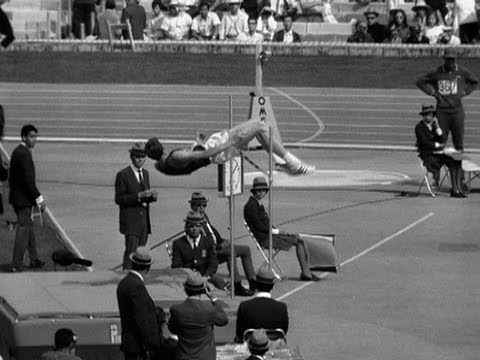
Today, a story from Jeff Raker and my thoughts from that around identifying the source of innovations.
In this case, look to the landing mat, not Dick Fosbury
A Flop?
by Jeff Raker
In business, when something “flops” it usually means a failure. A rollout didn’t pan out. A presentation was sterile. But a “flop” in 1968 changed the world. The Fosbury Flop that is. Dick Fosbury transformed the high jump, doing it a way no one had ever done before. Purists said he was ruining the sport. There were calls for him to be banned. But within a relative few years, everyone at the top of the sport was flopping.
A flop is innovative, out of the box thinking. Flopping requires a step outside your personal comfort zone. It means risk. Dick Fosbury wasn’t trying to innovate anything, he was just personally trying to figure out how to get over the bar. He thought of a different way to do it that worked for him. Others followed.
“So when a good idea comes, you know, part of my job is to move it around, just see what different people think, get people talking about it, arguing with people about it, get ideas moving among that group of 100 people, get different people together to explore different aspects of it quietly, and, you know – just explore things.” – Steve Jobs
This is a great insight into flopping that transforms.
There’s another piece to the Fosbury story, though. Prior to the 1960’s the “landing pad” for high jumpers was the ground covered with low mats, then straw and sawdust. Not soft. High jumpers were supposed to land on their feet. But in the 1960’s the plush cushioned mat was introduced. A new environment created new possibilities.
“Flopping that transforms”. I love it, Jeff, but what I love even more is to take the thinking forwards. Dick Fosbury was not the ultimate source for the innovation he created, it was inevitable once a padded landing mat was introduced that high jumpers would start to “flop” and land on their back.
If we look into the past for the true source of innovations, I wonder, by considering innovation in such a way, what we could learn and identity in terms of innovations yet to come to market?
In addition, once we are practiced at deep enquiry as to “true source”, where can we help others identify and unlock what may be holding them back from unleashing their full potential? This is at the heart of coaching, and the core skill needed is deep listening, truly focussing on what is happening. Only some people are coaches, yet all can benefit from deep listening.
To close with Jeff. Jeff is now a trained and expert coach, yet he brought to that profession several decades of experience as a pastor. I can only imagine the depths of empathy, listening and understanding he has brought to thousands over his career and particularly in pastoral care. What a powerful set of experiences to bring to enhance the deep listening of a coach.
